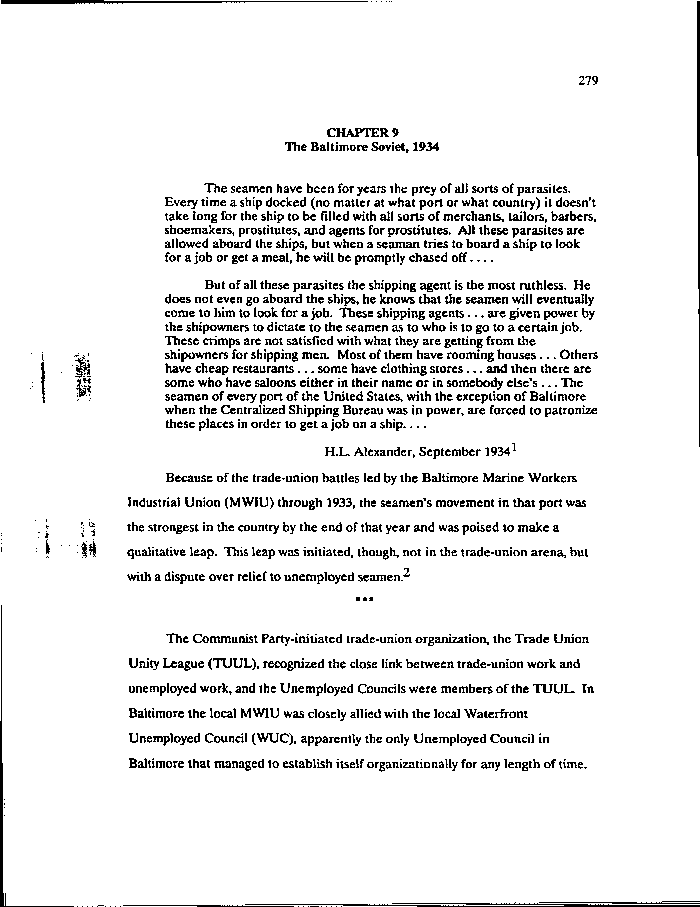|
279
CHAPTER 9
The Baltimore Soviet, 1934
The seamen have been for years the prey of all sorts of parasites.
Every time a ship docked (no matter at what port or what country) it doesn't
take long for the ship to be filled with all sorts of merchants, tailors, barbers,
shoemakers, prostitutes, and agents for prostitutes. All these parasites are
allowed aboard the ships, but when a seaman tries to board a ship to look
for a job or get a meal, he will be promptly chased off ....
But of all these parasites the shipping agent is the most ruthless. He
does not even go aboard the ships, he knows that the seamen will eventually
come to him to look for a job. These shipping agents ... are given power by
the shipowners to dictate to the seamen as to who is to go to a certain job.
These crimps are not satisfied with what they are getting from the
shipowners for shipping men. Most of them have rooming houses . . . Others
have cheap restaurants . . . some have clothing stores . . . and then there are
some who have saloons either in their name or in somebody else's . . . The
seamen of every port of the United States, with the exception of Baltimore
when the Centralized Shipping Bureau was in power, are forced to patronize
these places in order to get a job on a ship. . . .
H.L. Alexander, September 1934 1
Because of the trade-union battles led by the Baltimore Marine Workers
Industrial Union (MWIU) through 1933, the seamen's movement in that port was
the strongest in the country by the end of that year and was poised to make a
qualitative leap. This leap was initiated, though, not in the trade-union arena, but
with a dispute over relief to unemployed seamen.2
The Communist Party-initiated trade-union organization, the Trade Union
Unity League (TUUL), recognized the close link between trade-union work and
unemployed work, and the Unemployed Councils were members of the TUUL. In
Baltimore the local MWIU was closely allied with the local Waterfront
Unemployed Council (WUC), apparently the only Unemployed Council in
Baltimore that managed to establish itself organizationally for any length of time.
|

